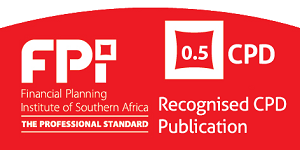Ethical culture begins with senior management
Publish date: 08 August 2019
Issue Number: 13
Diary: CompliNEWS Ethics
Category: Ethics
Corruption, Crime & Compliance
A company without an ethical culture, or at least a commitment to an ethical culture, will be unable to achieve an effective ethics and compliance programme.
NAVEX Global’s recent benchmarking report was an important confirmation that successful compliance programmes often have two strong characteristics – senior level buy in and automation. That makes sense.
Senior-level buy-in is a prerequisite. In the absence of such support, a chief compliance officer has a difficult path because much of the CCOs effort has to be aimed at educating and securing buy-in from senior management, which almost by definition is resistant to embracing the ethics and compliance programme.
Senior-level support is fairly easy to define. CEOs and senior executives understand compliance and can mouth the words of support – 'we are committed to doing the right thing, we know that we have to operate with integrity, etc.'
Frankly, I have heard it all and understand that senior executives know how to appear committed to ethics and compliance.
Thankfully, so does government regulators, and the compliance profession. Senior executive buy-in requires conduct, tangible actions that demonstrate that senior executives understand and embrace the compliance message.
The first real indicator of such buy-in is the relationship among the board, the CEO and senior executives, and the CCO. Three simple questions get to the bottom of this issue:
Does the board or relevant committee engage the CCO quarterly for reports and informally through regular contact?
Does the CCO meet and report to the CEO on a regular basis so that the CEO understands compliance and his/her importance to the ethics and compliance program?
Does the CEO and senior management communicate personally at business and employee meetings and repeat the importance of ethics and compliance, empower the CCO and specifically encourage employee reporting of concerns and potential problems?
There are many more questions I can list here but these are fairly basic and are valid indicators of senior level commitment to ethics and compliance.
CCOs have to be honest with themselves. When they lack senior buy-in, they have to prioritize the education and transformation of senior management understanding. CCOs have to make a time commitment to this effort or else face a frustrating spinning of their wheels which can lead to professional frustration. At some point, CCOs have to acknowledge the potential for change at the senior level, and if not, they have to consider moving to a new company where they may find a more receptive working environment.
I am an optimist but I am also a realist. Senior management either gets it or they don’t, and after a credible effort to educate senior management, a CCO has to be realistic about the potential for change. CCOs have too much at stake and their own careers to think of – their job is not to transform the world but to work at companies receptive to compliance or willing to change and embrace compliance.
Michael Volkov is founder of the Crime, Corruption & Compliance blog.





